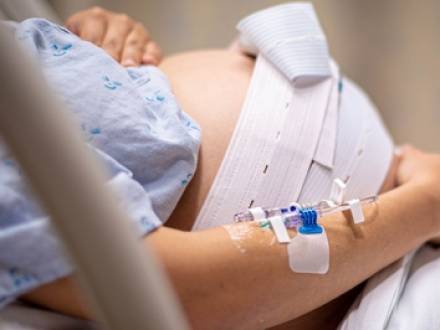What the Science Says About Pitocin and Birth Injuries
 Pitocin, a synthetic form of the hormone oxytocin, is widely used in labor and delivery rooms across Chicago. Hospitals administer Pitocin to induce labor in overdue pregnancies or to speed up contractions in cases where labor is progressing slowly. While the drug has become a staple in modern obstetrics, it is not without controversy. Recent medical studies and legal cases have raised important questions about whether Pitocin increases the risk of birth injuries, especially when used improperly or without close monitoring.
Pitocin, a synthetic form of the hormone oxytocin, is widely used in labor and delivery rooms across Chicago. Hospitals administer Pitocin to induce labor in overdue pregnancies or to speed up contractions in cases where labor is progressing slowly. While the drug has become a staple in modern obstetrics, it is not without controversy. Recent medical studies and legal cases have raised important questions about whether Pitocin increases the risk of birth injuries, especially when used improperly or without close monitoring.
As of May 2025, Pitocin is commonly approved for use, and many hospitals continue to rely on it for both planned inductions and labor augmentation. However, medical research has highlighted scenarios where its use may contribute to serious complications. Families whose children experienced birth trauma during Pitocin-induced labor may now wonder whether the drug played a role.
If you live in the Chicagoland area and have suffered injuries or the tragic wrongful death of your infant, and you think medical malpractice and Pitocin use may have played a role, it is important to talk to an Illinois birth injury lawyer. You can read further about birth injuries and lawsuits here.
What Is Pitocin and Why Is It Used?
Pitocin is typically delivered through an IV pump and requires constant fetal monitoring. Doctors are required by law to provide every patient with the expected standard of medical care, which includes watching for signs of uterine overstimulation or fetal distress and adjusting the dosage as needed.
When this oversight fails, the consequences can be significant. Medical malpractice lawsuits have increasingly pointed to the misuse of Pitocin as a contributing factor in cases involving brain damage, emergency C-sections, and permanent developmental delays.
What the Research Shows About Pitocin and Birth Injuries
Recent studies have shown that improper use of Pitocin can lead to several medical risks:
-
Uterine tachysystole, where contractions occur too frequently or with excessive intensity, potentially restricting oxygen to the baby
-
Fetal heart rate abnormalities that may indicate the baby is in distress
-
Increased rates of emergency cesarean deliveries following failed inductions
-
Neonatal asphyxia or hypoxic-ischemic encephalopathy (HIE), conditions resulting from insufficient oxygen during labor
One 2023 study published in the American Journal of Obstetrics and Gynecology found that high-dose Pitocin protocols correlated with elevated NICU admission rates. While correlation does not prove causation, the findings highlight the need for careful, individualized use of Pitocin in labor management.
When Does Pitocin Use Become Medical Negligence?
Pitocin itself is not inherently dangerous, but the way it is administered matters. In some cases, medical staff fail to adjust or halt the Pitocin infusion when warning signs emerge. In others, doctors proceed with induction without fully informing the patient of the potential risks.
Hospitals may also fail to document fetal monitoring results properly, making it harder to identify when a medical error occurred. These oversights can turn what should be a routine medical intervention into a devastating outcome for both the baby and the parents.
What Are My Legal Options After a Birth Injury?
When birth injuries occur, families often face long-term consequences. Children may require years of therapy, special education, or lifelong medical care. If Pitocin misuse or poor medical judgment contributed to the injury, families may be entitled to compensation for those expenses through a birth injury lawsuit.
These cases typically involve a detailed investigation of labor records, fetal monitoring strips, and expert testimony. While hospitals may be reluctant to accept fault, families have the right to demand accountability and seek support for their child’s future needs.
Contact a Chicago, IL Birth Injury Lawyer
To learn whether Pitocin played a role in your child’s birth injury and whether legal action is warranted, contact Winters Salzetta O'Brien & Richardson, LLC at 312-236-6324 to speak with a dedicated Illinois birth injury attorney. Our team offers free consultations and has a proven record of holding hospitals accountable for negligent labor and delivery care.





 312-236-6324
312-236-6324




 312-236-6324
312-236-6324 312-236-6426
312-236-6426


